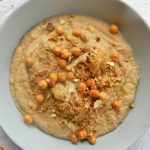Why is Gut Health Important?

When we talk about gut health, we’re not just talking about our digestion (although of course that’s a large part of it). A huge area of research has been done over recent years in to the role our gut plays in some surprising aspects of our health.
The “Gut Microbiota” refers to the collection of bacteria, fungi and parasites in our gastrointestinal tract and our body has more of these microbial cells than we have human cells! We have about 40-50% human cells verses 50-60% microbial cells and there’s several hundred times more DNA in our body from these microorganisms compared to our human DNA.
These gut bugs have now been found to have important roles in our health including our immune system, allergies, risk of diseases and even our mental health. There are also the more obvious associations such as Irritable Bowel Syndrome, which affects one in five Australians, or bowel cancer, which is the second most common form of cancer in Australia. Our microbiota also produce energy and nutrients by feeding off the parts of our food that we can’t digest, like fibre.
The research has also shown a fascinating link between our gut and our brain, which is becoming known as the gut-brain axis. Our brain and our gut produce signals that communicate to each other in both directions; not only is our brain talking to our gut, but our gut is actually talking to our brain too! You have probably experienced this yourself – if you’ve ever had butterflies in your stomach or needed to run to the toilet before an exam, these are clear examples of this link.
It’s quite clear that factors like stress, depression or anxiety can affect the way our gut functions and newer research has shown that our gut bacteria and what we eat can impact our mood as well.
Here’s just some of the many ways you can nourish your gut microbiota and optimise your health:
- Fibre
You’ll find fibre in plant foods such as fruits, vegetables, legumes (beans, chickpeas and lentils), nuts, seeds, and whole grains.
Fibre feeds the good bacteria in your gut, helping them to multiply and produce important nutrients for us. Conversely, a diet low in fibre can ‘starve out’ these good bacteria and cause an imbalance of the bad bacteria. Some specific types of fibre, called prebiotics, are particularly helpful as they have been shown in research to more specifically fuel our good bacteria.
Fibre also helps to keep everything moving through your gut, keeping you regular. It adds bulk to your stools, and absorbs water so that they are soft and easier to pass. If you’re getting constipated regularly try upping your fibre intake as a first step to get things moving.
- Hydration
Every part of your body needs to be hydrated to function optimally. Even mild dehydration can affect memory, concentration and energy levels. Regularly having inadequate water can also cause (or worsen) constipation as it’s required to keep your stools soft. This is particularly important when you start increasing the amount of fibre you eat; increasing fibre without enough water can actually make constipation worse, rather than better.
- Whole Foods
Eating minimally processed, whole foods is a good idea for many reasons but in terms of gut health it’s important as these foods tend to have more fibre, antioxidants, vitamins and minerals with less artificial additives, sugar and salt. An eating pattern with lots of high sugar, low fibre processed foods can also disrupt the balance of bacteria in our gut by encouraging the growth of bad bacteria that thrive on these types of foods.
- Mindful Eating
Long-term chronic stress can cause negative effects in your body, including your digestive system. The ‘fight or flight’ response decreases blood flow to your digestive system and you also produce less enzymes to break down your food.
Mindful eating is one way we can help our body relax during digestion. This is essentially the opposite of mindless eating (ie. eating food whilst distracted or not thinking about what you’re doing).
Try slowing down, removing distractions (like your phone, tv or computer), chewing your food slowly and for longer and noticing the taste, smell, texture, sounds and look of your food. This will not only help you enjoy your food more, but also help kick your digestion in to gear to metabolise the food efficiently and absorb more nutrients. People who eat mindfully are also less likely to overeat at that meal.
If you would like more information or support to improve your eating habits and gut health, or manage your gut symptoms, contact your dietitian.




